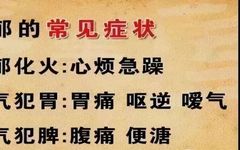What is Liver Qi Stagnation?
Some friends often sigh, feeling a blockage in their chest, their emotions not very high, and they suspect they might have Liver Qi Stagnation. Is it possible? It indeed could be Liver Qi Stagnation! Unlike the heat symptoms of Liver Fire, Liver Qi Stagnation is characterized by Qi stagnation, emotional changes, and is also known as Liver Qi Stagnation Syndrome. This condition arises from the liver’s failure to regulate and disperse Qi, leading to stagnation. Typical symptoms include depression, frequent sighing, fullness in the chest or lower abdomen, and wandering pain. Female patients may experience breast lumps, breast tenderness, irregular menstruation, and dysmenorrhea. Modern medicine often diagnoses these symptoms as chronic hepatitis, depression, menopausal syndrome, or mammary gland hyperplasia, which are common manifestations of Liver Qi Stagnation.
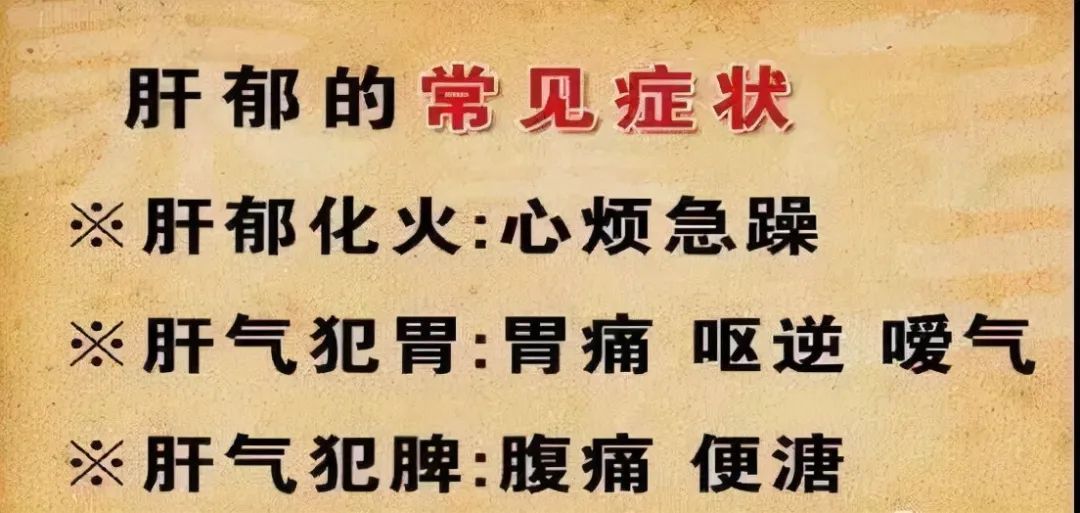
Why Does Liver Qi Stagnation Occur?
This condition is often related to emotional factors and pathogenic invasions. Emotional factors can include anger, depression, unfulfilled desires, or sudden psychological stress, which can disrupt the smooth flow of Liver Qi, leading to stagnation and impairment of liver function, thus causing symptoms. Pathogenic factors may include blood stasis or phlegm, which can obstruct the Liver Meridian, causing Qi stagnation; or damage to the spleen and stomach, leading to poor Qi flow in the middle jiao, which also affects Liver Qi.
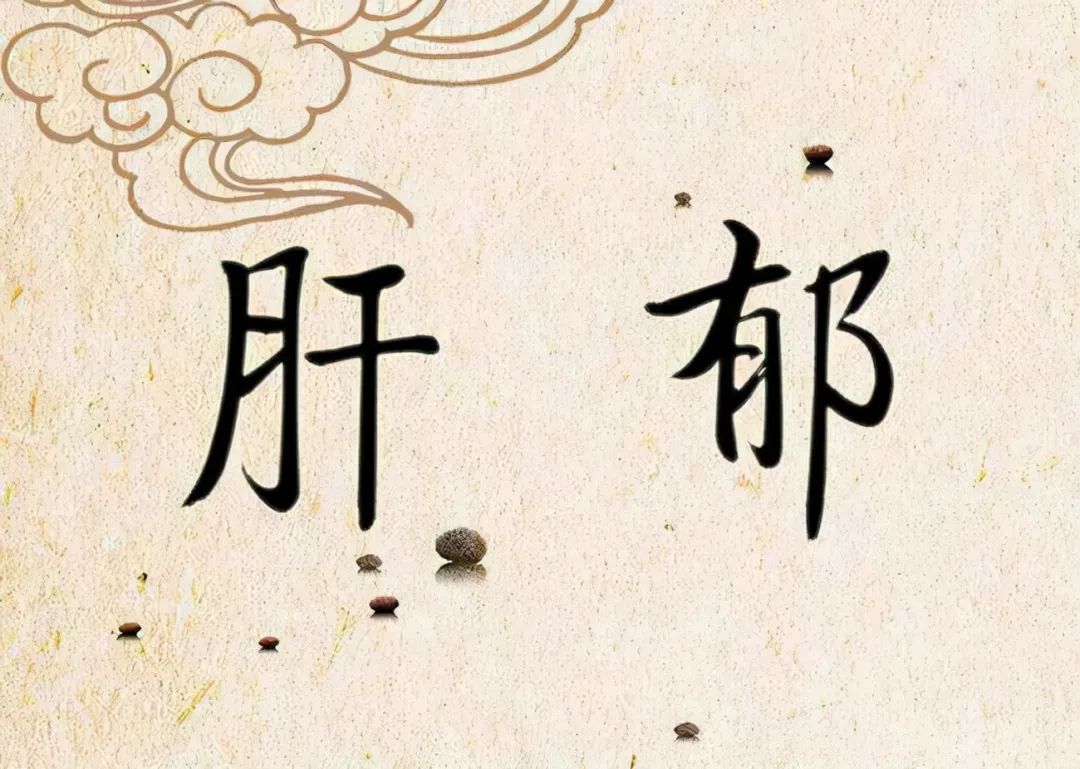
How to Determine Liver Qi Stagnation
In TCM, it is said that all diseases arise from Qi. Therefore, resolving the issue of Liver Qi Stagnation is crucial for women to reduce or even eliminate illness.
Causes of Liver Qi Stagnation:
Several factors can lead to Liver Qi Stagnation:
1. Family disharmony: Frequent arguments between spouses or tense relationships with in-laws can lead to discomfort in Liver Qi.
2. Social pressure: For instance, older unmarried women often face pressure from parents, relatives, and colleagues regarding marriage, compounded by negative societal perceptions, leading to significant stress and discomfort in Liver Qi.
3. Work pressure: In modern workplaces, there is no gender preference, and women often bear unprecedented stress, especially white-collar women who are pulled between family and career, leading to widespread Liver Qi discomfort.
4. Poor self-regulation: Many women struggle to cope with issues, tend to dwell on negative aspects of life and work, and find it hard to self-soothe, which often results in Liver Qi Stagnation.
Manifestations of Liver Qi Stagnation:
One manifestation is Qi stagnation, where Qi is trapped in the body, leading to feelings of depression and oppression, commonly described as feeling “stifled” or “angry inside.” Prolonged Qi stagnation can generate heat, leading to excessive Liver Fire and irritability. Some people may sigh frequently and feel unhappy, while others may become impulsive and easily angered, causing distress to themselves and others.
Many women recognize their poor health and wish to take blood-nourishing supplements, but they often experience mouth ulcers or insomnia after taking them. Some believe this is due to “deficiency not receiving nourishment,” but these issues are often caused by Liver Fire blocking the way for nourishment.
The dangers of Liver Qi stagnation are significant and beyond imagination; it can lead to blood stasis, weak temper, dampness accumulation, and even Yin deficiency with Yang excess. In summary, the “crimes” of Liver Qi stagnation are numerous.
Today, many people suffer from Liver Qi stagnation, especially women who juggle family responsibilities and careers, raising and educating children while also caring for elderly parents, making it difficult to avoid Liver Qi stagnation.
How to Self-Diagnose Liver Qi Stagnation
Self-diagnosis is essential and should not be taken lightly. The most critical evidence of Liver Qi stagnation can be found on the tongue. Generally, a normal tongue is oval-shaped, while a person with Liver Qi stagnation has a pointed tongue, often with a red tip and edges—this is a key clue for diagnosing Liver Qi stagnation.
To confirm Liver Qi stagnation, you may also look for the following “evidence”:
(1) Bitter taste: Many women notice a bitter taste in their mouth, especially in the morning.
(2) Dry throat: A feeling of dryness in the mouth and throat, as if there is no saliva, although some may still have saliva visible on the tongue.
(3) Sensation of obstruction in the throat: A feeling as if something is stuck in the throat, known as “plum pit Qi.”
(4) Dizziness: Some women frequently experience dizziness, either all day or in sudden episodes, and some may also have headaches.
(5) Poor appetite: “Liver Wood counteracts Spleen Earth,” so discomfort in Liver Qi can lead to various spleen and stomach issues, such as lack of appetite, bloating, and stomach pain.
(6) Alternating chills and fever: Feeling hot when dressed and cold when undressed, or feeling hot in a warm room and cold outside.
(7) Irritability: Those with Liver Qi stagnation often feel irritable and easily angered.
(8) Nausea: Due to “Liver Wood counteracting Spleen Earth,” leading to upward Qi reversal, causing feelings of gas rising, belching, acid reflux, or even vomiting.
(9) Chest tightness: A feeling of tightness in the chest, sometimes diagnosed as heart problems. However, those with heart issues should first address Liver Qi stagnation if their tongue is pointed.
(10) Rib pain: A persistent feeling of pain in the ribs.
(11) Insomnia and vivid dreams: Insomnia can stem from either blood deficiency or Liver Qi stagnation. Vivid dreams are also a sign of Liver Qi stagnation, as such individuals often dream continuously upon falling asleep.
(12) Low mood: Frequent sighing, feeling melancholic, and being overly sensitive.
(13) Cold hands and feet: While many know that cold extremities can result from Yang deficiency, blood deficiency, or blood stasis, few recognize that Liver Qi stagnation can also cause cold hands and feet. If cold extremities coincide with the above symptoms, consider the possibility of Liver Qi stagnation.
These are the criteria for diagnosing Liver Qi stagnation. If at least one or two symptoms match, and the tongue is pointed, it is likely Liver Qi stagnation. In fact, even without these symptoms, women often have an intuitive sense of their emotional state, whether they have experienced distress, anger, or significant work pressure—these are things they know best. Thus, the true diagnostic standard for Liver Qi stagnation lies within oneself.
The liver governs the regulation of Qi. If the liver’s function is normal, Qi flows smoothly, blood is harmonious, and one’s mood is joyful and bright; conversely, if the function is impaired, Qi stagnates, leading to anxiety, depression, irritability, and other negative emotions.
Since the Liver Meridian primarily runs along the sides of the body, regular scraping of this area can help relieve Liver Qi stagnation. The focus should be on the intersection of the nipple line and the sixth intercostal space, known as Qimen (期门) point. When scraping, the movements should be slow, targeting painful or nodular areas.
II. Massage Techniques for Relieving Liver Qi Stagnation
Massage Principle: TCM believes that when the liver fails to regulate, it easily leads to Qi stagnation and Qi fire disturbance. Therefore, when using massage therapy to nourish and protect the liver, the focus should be on soothing the liver, regulating Qi, clearing liver fire, promoting liver blood circulation, and ensuring smooth Qi flow throughout the body. The Liver Meridian reflects and regulates liver function, so traditional TCM massage primarily involves pressing and kneading key acupoints along the Liver Meridian to nourish the liver. Additionally, as the liver and kidneys are interconnected, massaging related acupoints on the Kidney Meridian can also help relieve Liver Qi stagnation and regulate liver function.
Hand Massage
Press and knead the liver reflex area on the thumb for 3-5 minutes until a feeling of soreness and swelling is achieved. Massaging this reflex area helps relieve Liver Qi stagnation and regulate liver function, enhancing the liver’s blood storage capacity and alleviating irritability.
Foot Massage
Press and knead the Tai Xi (太溪) point on the foot for 3-5 minutes until a feeling of soreness and swelling is achieved. This Kidney Meridian point also nourishes water and supports the liver. Regularly massaging this point is crucial for liver regulation.
Press and knead the Tai Chong (太冲) point for 3-5 minutes until a feeling of swelling and pain is achieved. Whether it is Liver Fire, Liver Yang, or Liver Qi, this point can help drain excess. Massaging this point helps calm the liver, extinguish wind, relax muscles, and regulate Qi.
Pinch and press the Da Dun (大敦) point for 2-3 minutes until a feeling of pain is achieved. The Da Dun point has powerful therapeutic effects. Massaging this point benefits Qi, consolidates the liver and kidney, and significantly supports liver health.
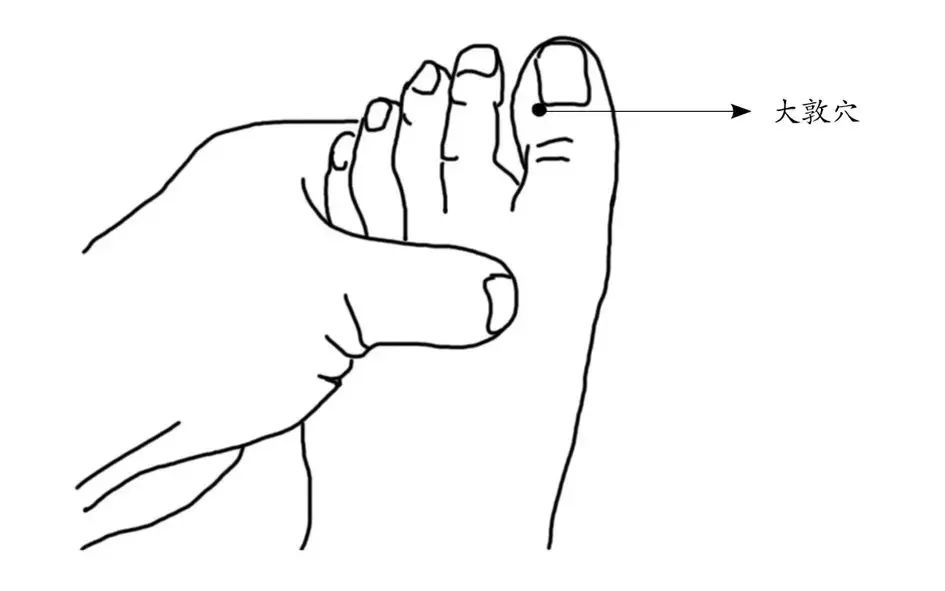
Press and knead the liver and gallbladder reflex areas on the foot for 1-3 minutes each, three times a day. This method can enhance liver function and treat liver and gallbladder disorders, as well as symptoms like anxiety, insomnia, and depression.
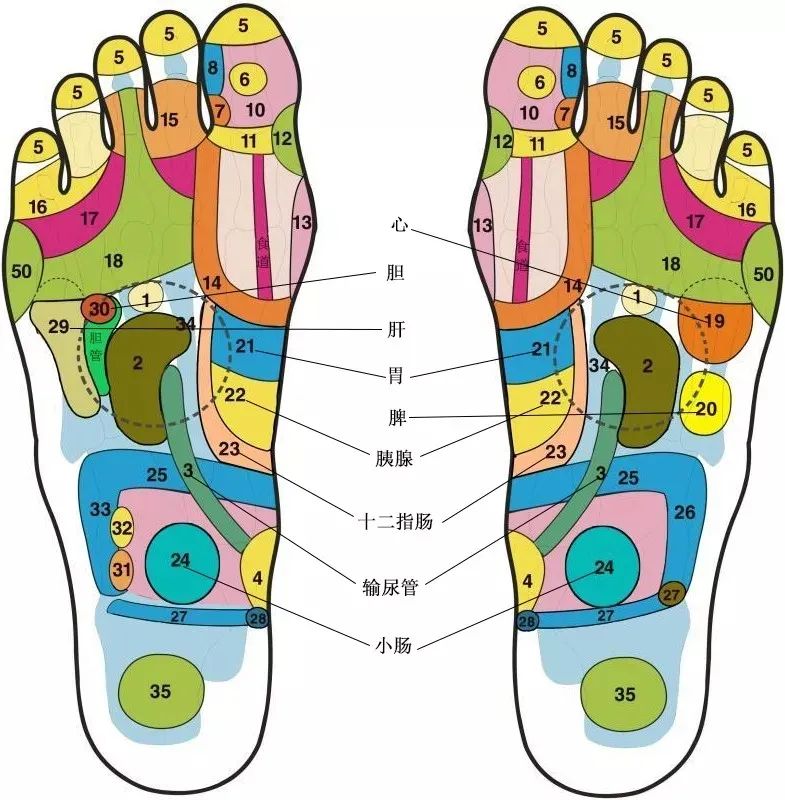
Using the thumb, press and knead the abdominal nerve plexus reflex area on the foot for 1-3 minutes, three times a day. This method has a regulating effect on the nerves and can treat conditions like menopausal syndrome caused by Liver Qi stagnation.
Press and push the kidney, ureter, and bladder reflex areas on the foot for 1-3 minutes each. This method can enhance urinary system function, accelerate the filtration, secretion, and excretion of metabolic waste, and promote liver discharge function.
Ear Massage
Using the index finger, press and knead the Shen Men (神门), Heart, and Cortical reflex areas on the ear for 1-3 minutes each. Regularly massaging these reflex areas can have a calming effect and effectively alleviate various symptoms caused by Liver Qi stagnation.
Using the index finger, press and knead the liver reflex area on the ear for 1-3 minutes until a feeling of soreness and swelling is achieved. This method directly affects the liver, improving blood circulation to the liver and enhancing its discharge function, thus relieving Liver Qi stagnation.
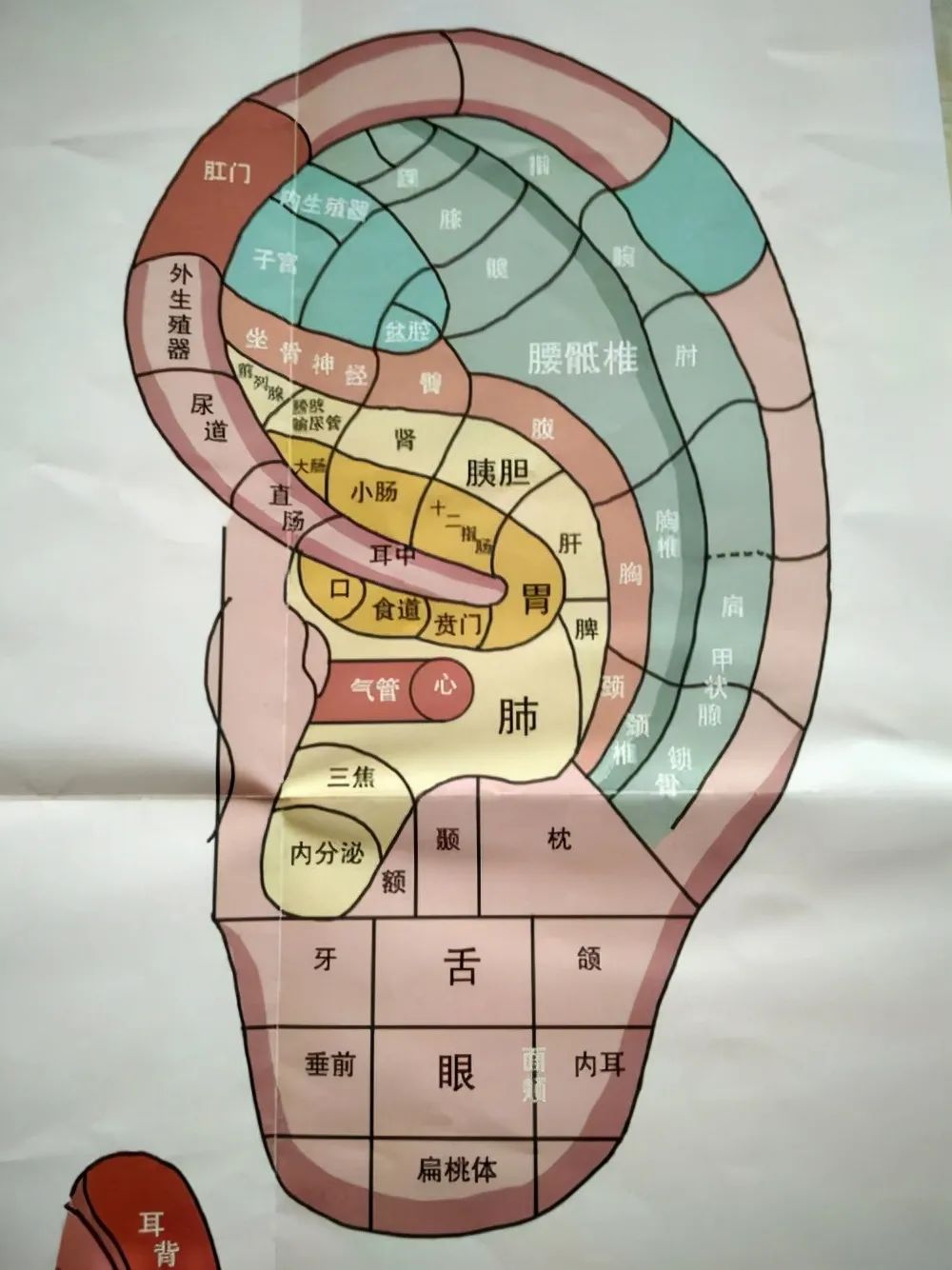
Daily Liver Care
1. Maintain a normal weight: The fat in the liver will decrease as body fat decreases. It is recommended to engage in moderate-intensity aerobic exercise for about 30 minutes, five times a week, and to maintain a balanced diet according to individual circumstances.
2. Avoid alcohol: Abstaining from alcohol is currently the most effective measure to protect the liver. Studies have found that for patients with alcoholic fatty liver, liver fat can significantly improve about ten days after quitting alcohol.
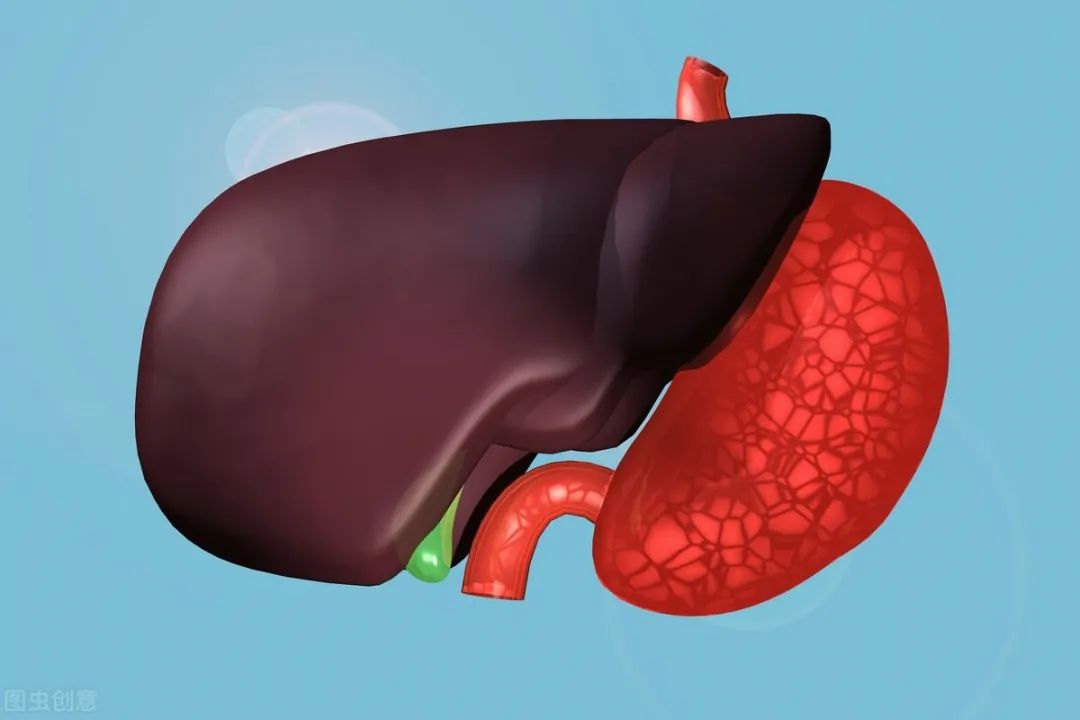
3. Avoid indiscriminate medication: Follow medical advice when taking medication and avoid combining medications. For example, many cold medications, including traditional Chinese patent medicines, contain acetaminophen. Taking more than one cold medication simultaneously can lead to excessive intake of acetaminophen without realizing it.

4. Pay attention to sleep: The liver and gallbladder begin their metabolism at 11 PM, and sleeping at this time allows the liver to repair itself, minimizing adverse effects. Sitting quietly for 10-30 minutes after meals before exercising ensures normal liver metabolism. Staying up late, excessive gaming, and continuous mahjong playing are all bad habits that harm the liver. To regulate the liver, it is essential to maintain a regular schedule, going to bed early and rising early.
I and Health Daily provide you with health knowledge
Click below to follow for free
Editor shares good articles with friends
1. The Spleen and Stomach are the foundation of longevity! Two classic dietary therapy recipes to strengthen the spleen, eliminate dampness, and nourish Yin.
2. Strengthening the spleen is like nurturing life; spleen deficiency leads to weakness! A traditional Chinese patent medicine to tonify the spleen and stomach, harmonizing digestion.
3. So precious! Over 800 folk remedies, no illness cannot be treated, save for future reference!
4. Understanding every medicinal herb resource summary.
Like is a form of encouragement Share to spread joy.

